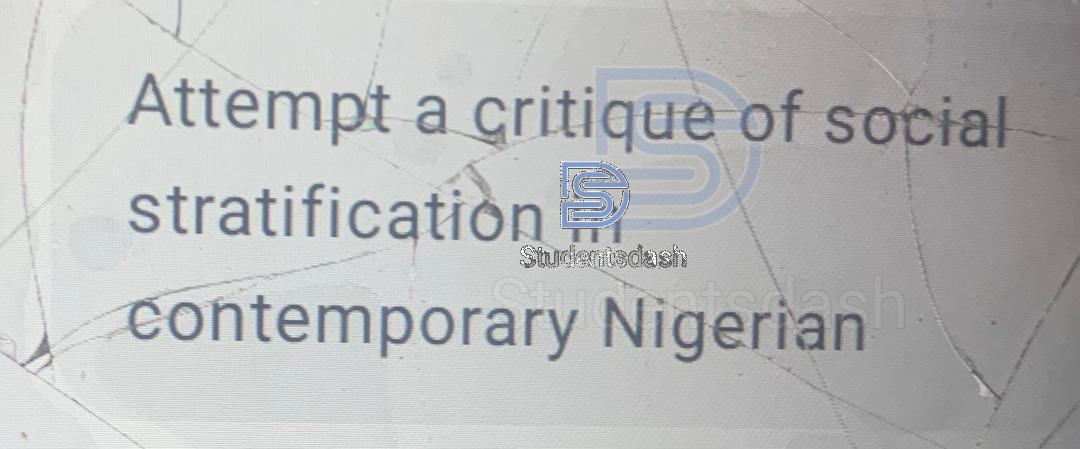HIR 411 Past Questions and Answers
Assignment……..
HIR 411. Dr. Ugochukwu…. Define public policy (4 pages)
Submit Tuesday 25th Feb (tomorrow)
Definition of Public Policy
Introduction
Public policy is a broad and important concept in governance. It refers to the actions, laws, and decisions made by the government to address various issues affecting society. Public policies are created to maintain order, provide essential services, protect citizens’ rights, and ensure national development. Governments at all levels—local, state, and federal—make policies that influence different aspects of life, including education, healthcare, security, and the economy.
This paper will define public policy, explain its key features, discuss the process of policy-making, and highlight its importance in society.
Definition of Public Policy
Public policy can be defined as a deliberate system of principles, laws, regulations, and actions that a government adopts to address issues within society. It is the government’s plan of action to solve problems, improve the lives of citizens, and achieve specific goals.
Different scholars and organizations have provided definitions of public policy:
1. Thomas R. Dye (1972) – Dye defines public policy as “whatever governments choose to do or not to do.” This means that policy is not just about making laws; it is also about the government’s decision to act or not act on a particular issue.
2. David Easton (1953) – Easton describes public policy as “the authoritative allocation of values for a society.” In simple terms, this means that public policy reflects the priorities of a government and determines how resources and opportunities are distributed.
3. James Anderson (1975) – Anderson defines public policy as “a purposive course of action followed by an actor or set of actors in dealing with a problem or matter of concern.” This highlights that policies are created with a clear goal in mind and are meant to solve specific problems.
From these definitions, we can understand that public policy is not just about making laws. It includes decisions, actions, programs, and strategies that guide how a government manages public affairs.
Key Features of Public Policy
Public policy has several important characteristics:
1. Government Authority – Public policy is made and enforced by the government. It is not just an individual decision but an official action that affects a large group of people.
2. Problem-Oriented – Policies are created to address specific issues in society, such as unemployment, poverty, security, and education.
3. Goal-Oriented – Every policy has an objective. It is designed to achieve a specific result, such as improving healthcare or reducing crime.
4. Dynamic and Changing – Public policies are not fixed. They change over time based on new challenges, public opinion, and government priorities.
5. Implementation and Enforcement – Policies must be put into action. This is done through government agencies, ministries, and public institutions that ensure policies are carried out effectively.
6. Impact on Society – Public policies affect people’s lives in many ways. For example, an education policy can improve schools, while a transport policy can lead to better roads.
The Process of Public Policy Making
Public policy is created through a step-by-step process that ensures it is well-planned and effective. The main stages of policy-making include:
1. Problem Identification – The government identifies an issue that needs to be addressed, such as insecurity, unemployment, or poor healthcare.
2. Policy Formulation – Experts, policymakers, and government officials discuss possible solutions and draft policies to address the issue.
3. Decision Making – The government decides on the best policy and approves it. This can be done through executive orders, laws passed by the legislature, or regulations from government agencies.
4. Implementation – The policy is put into action by relevant government bodies. For example, if a new education policy is introduced, the Ministry of Education will be responsible for carrying it out.
5. Evaluation and Review – The government monitors the policy to see if it is achieving its goals. If necessary, adjustments and improvements are made.
Importance of Public Policy
Public policy plays a crucial role in governance and societal development. Some of its key functions include:
1. Solving Social Problems – Public policies help governments tackle challenges such as poverty, unemployment, and crime.
2. Promoting Economic Growth – Policies in areas like trade, investment, and taxation help boost the economy and create job opportunities.
3. Ensuring National Security – Policies on defense and internal security protect citizens from threats such as terrorism and crime.
4. Providing Public Services – Policies in education, healthcare, and transportation ensure that citizens have access to essential services.
5. Protecting Citizens’ Rights – Policies on human rights, freedom of speech, and equality ensure that all individuals are treated fairly.
6. Improving Governance – Public policies help governments function smoothly by providing guidelines for decision-making and administration.
Conclusion
Public policy is a fundamental part of government and society. It refers to the actions, decisions, and laws made by the government to address various issues and improve the lives of citizens. Effective public policies help solve problems, promote economic growth, ensure security, and provide essential services.
Understanding public policy is important for citizens because it affects everyday life, from the education system to healthcare and transportation. By engaging with public policy, people can influence government decisions and contribute to national development.

